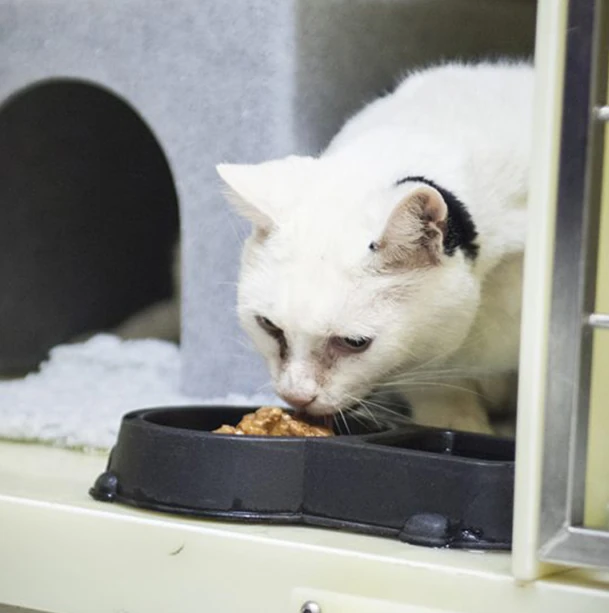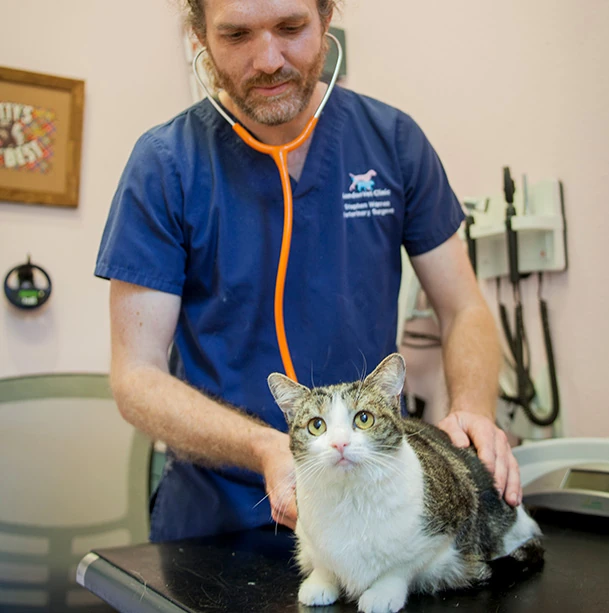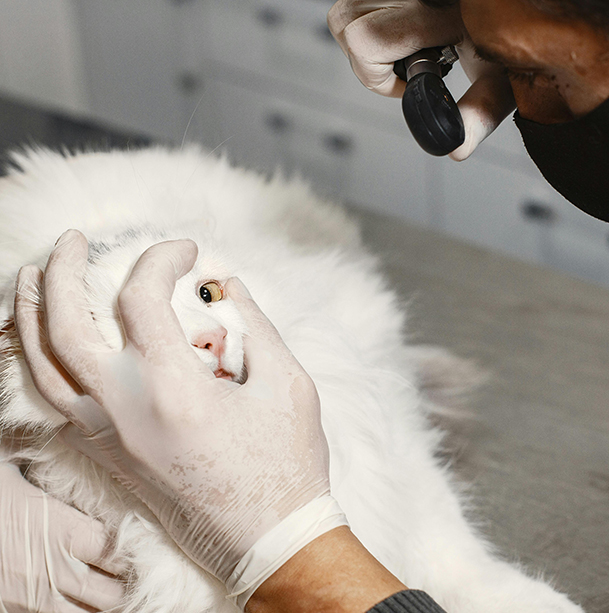A variety of both internal and external parasites have evolved to live, often in peaceful harmony, with cats. A few are potentially transmissible to us, or are certainly happy to live on or in us. Fortunately most are simple to prevent, or treat.

A variety of both internal and external parasites have evolved to live, often in peaceful harmony, with cats. A few are potentially transmissible to us, or are certainly happy to live on or in us. Fortunately most are simple to prevent, or treat.
Most indoor cats in London need only primary treatment when they enter your home. Further prevention in needed only in exceptional circumstances such as the introduction of new cats or dogs.
Outdoor cats however need routine preventative treatment, especially for fleas.


All of these parasites are eliminated using a variety of prescription ‘spot-ons’ or tablets. If fleas are present treat your household with flea birth control and flea killer products to prevent reinfestation. The nurses will advise according to your pet’s (and your) individual needs.
DANGER: Some ‘spot-ons’ that contain pyrethins, for example Advantix, which is safe and effective for dogs, are potentially lethal for cats. Never use products with pyrethrins either on cats or on dogs that live with cats.
All of these parasites are eliminated using a variety of prescription ‘spot-ons’ or tablets. If fleas are present treat your household with flea birth control and flea killer products to prevent reinfestation. The nurses will advise according to your pet’s (and your) individual needs.
DANGER: Some ‘spot-ons’ that contain pyrethins, for example Advantix, which is safe and effective for dogs, are potentially lethal for cats. Never use products with pyrethrins either on cats or on dogs that live with cats.
Dr Stephen is taking care of my dog for a long time.
The best!
Marcos Wenzel
Very helpful and professional staff. Dr. Hugo Richardson goes out of his way to ensure the right treatment is provided for my dog who has the Leishmania disease.
L Michel
I have been with London Vet Clinic for many years and all the dogs I have had have been looked after 100% from the nurses to the vets they are absolutely excellent and always look after my dogs
Julie-Ann
Pets come first here for me this is what I require in a vet secondly it’s a friendly vet service who will advise you on all things benifical for your pet
Gav Gene
Best vets in London! Super friendly and knowledgeable, our dog always loves going even when she’s unwell, which I take as a good sign!
Christina Rhodes
I love the London Vet Clinic – everyone is always so lovely and accommodating. You can tell they really love animals which is very reassuring when you have to leave your pets in their care.
MSG
Digital strategy, website development, and marketing by Living Dreams Web Development Solutions in partnership with Dr Samuela Merenda, DVM, MRCVS.